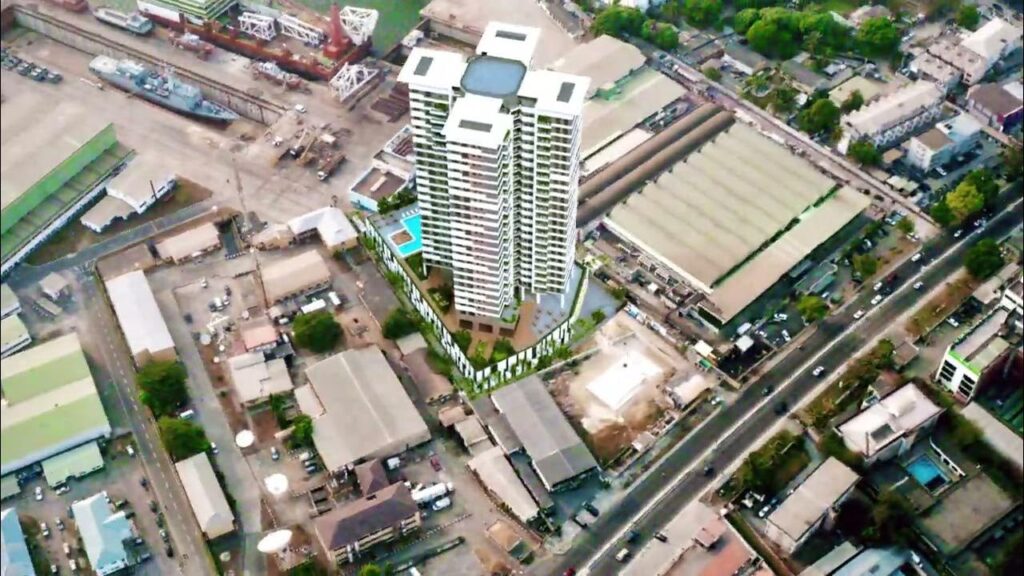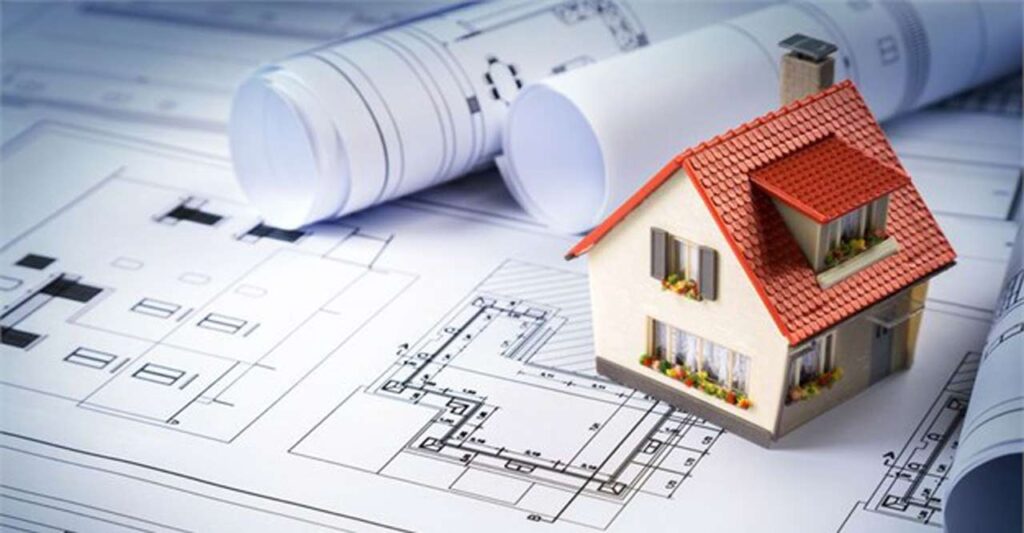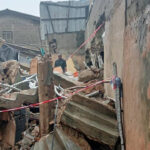
When the Lagos State governor, Babajide Sanwo-Olu, recently visited the scene of the collapsed building on First Avenue in Banana Island, Ikoyi area of the state, he accused some officials of the Lagos State Building Control Agency (LASBCA) of corruption, and culpability in the seven-storey building mishap.
Expressing his frustration with the agency, he said: “It is heartbreaking each time we have to go through this and it shows how irresponsible both the developers, some of our citizens that just want to make quick money, and of course our officials, who are not alive to their responsibility.
“We have had to change staff here and there so that we can bring forward robust and very strong monitoring offices, but we are still short of it, I must say. We need to do what we have to do to keep lives of our citizens safe at all times.”
Despite Sanwo-Olu’s concerns, 24 hours later, another two-storey building under construction at 43, Ladipo Oluwo Street, Apapa Government Reserved Area, also gave way. The state’s Materials Testing Laboratory claimed it had sealed the building in January, but the developer continued with construction.
In fact, building collapses in Nigeria have become too many to count, with some not giving media attention due to their locations. At the last count, more than 62 buildings collapsed in 2022, leaving 84 dead and 113 injured, according to the Building Collapse and Prevention Guild (BCPG).
Out of the figure, Lagos accounted for 20 cases, consisting existing and ongoing projects, Kano and Anambra had five each, while Delta and Jigawa states recorded four failures. Oyo had three collapses, Ebonyi and Imo States two a piece. One each was recorded in Plateau, Ondo, Osun, Abia, Abuja, Cross River, Akwa Ibom, Kogi, Niger, Rivers, Ogun, Yobe, Taraba, Bayelsa, and Gombe states.
There were 135 reported cases of collapsed buildings between 2007 and 2013. The highest occurrence was in 2012 with a total of 34 cases consisting 25.2 per cent, while buildings of two-three floors have a total number of 54 cases constituting 40 per cent of the incidents. Buildings above five floors recorded the lowest number of cases.
The developments also bring to the fore the issues of building approvals, controls and monitoring, which have remained official pipeline for corruption in Nigeria, among some professionals saddled with such exercises. Some experts say, officials use ‘stop work order’ or ribbons on properties for personal gains rather for the good of the state, as work always continue when palms of officials are greased.
Investigations have shown that officials indicted in such incidents are never sanctioned, while several probe panels, committee reports or tribunals recommendations submitted to governments by professionals were never implemented in their entirety, especially in Lagos. Some professionals told The Guardian that the bane of building collapse in Lagos is government’s lack of political will to implement reports.
Recommendations obtained by The Guardian on a Tribunal of Inquiry into Collapsed Buildings in Lagos State in 2013 revealed that weak implementation by the relevant government agencies, flagrant abuse and deliberate flouting by the public, crass indiscipline and gross corruption by all and sundry rendered the urban planning and development laws ineffective.
Among suggestions made was that Lagos State Material Testing Laboratory should establish a Monitoring and Enforcement Unit in compliance with the provisions of Sections 9 and 13 of the Building and Civil Engineering (Construction) Materials Quality Law, 2006, while adequate sanctions should be imposed on developers, government officials and professionals found culpable; to discourage greed, indiscipline and corruption in the system.
Development permit process should be decentralised and vetting of documents should be carried out only by the appropriate registered professionals for each component, while monitoring and control activities should be outsourced to only registered professionals due to the apparent inability of Lagos State Building Control Agency (LASBCA) to effectively carry out these functions.
The tribunal further observed that the list of parcels of land forfeited to government as a result of collapsed buildings is not in public view. “The existing monitoring, control and enforcement is grossly deficient. The indiscriminate manner in which buildings are marked by LASBCA has made the whole system ridiculous and made a mockery of enforcement.
“The preponderance of illegal developments is traceable to cumbersome planning permit process, absence of physical development plans and operative development guides, as well as title documents as prerequisite for granting planning. All these make the process difficult and frustrating and inhibit developers from making applications.
“Indiscriminate use of building materials generally, without ascertaining quality and / or purpose of usage, lack of quality control in production of sandcrete blocks and other building materials also add to this sad occurrence.”
The President, Nigerian Institute of Town Planners (NITP), Nathaniel Atebije, told The Guardian, “to allude that corruption is the main cause of building collapse may not be far from the truth; but who is the corrupt person responsible for this situation? It squarely lies on the head of the professional (architect, engineer and builder), who is responsible for supervision of the building production process and not the town planner. To think it is the fault of the town planner is a function of either ignorance or misinformation.
“Painfully corruption has become endemic. It pervades every sphere of our national life. Most politicians get into power through questionable means. Corruption has not given Nigeria the opportunity of electing leaders of their choice. Thus plans are made, budgets are proposed and approved but there cannot be visible evidences to back up the expenditure.”
He said Lagos has become the epicenter of building collapse to the extent that most people especially those in the old high density buildings seem to be perpetually restless concerning their safety in the buildings they live. It is at the same time worrisome that in this era of knowledge, expertise and improved technology buildings under construction are the ones mostly involved in incidences of collapse leading to loss of valuable lives and properties.
“Building production takes a process. It starts with the submission of designs to the Department of Development Control for vetting and eventual issuance of development permit. Development control is a multi-disciplinary department consisting of all the professionals in the built environment to make their contributions as to the compliance of the proposal with planning regulations, architectural and engineering standards and the building code, which is usually headed by town planners, who coordinate the approval process.”
According to Atebije, challenges of the quality of buildings may start from the design stage if appropriate soil studies are not undertaken to form the basis of design. “If the design was done by an incompetent engineer and the professionals in development control agency do not have the capacity to adequately vet it, trouble looms at the corner.
“And it would be worse if the supervising engineer is also incompetent to construct that magnitude of project. Compromises and sharp practices between the professionals supervising the construction and the developer culminate in building collapse.”
To curb incessant building collapse, NITP president recommended that government should build the capacity of its technical staff, who vet building plans and those who supervise the construction process through training and retraining to enable them key into current international best practices in the industry.
“Buildings, which are above five floors should be advertised in the newspapers on a scheduled day and subjected to public scrutiny, to be analyzed by experts in public and private sectors, who could be invited to scrutinize the technical details of the design. Remunerations of the invited experts will be borne by the developer. Contractors for such buildings must be corporate entities of repute, who have the expertise and integrity to protect.”
Atebije noted that the practice of allowing the governor to approve multi-storey buildings should be discontinued. “Some of the buildings collapse because politicians influence approval process. This paves way for impunity and the devastative impacts of collapse.
“No single individual should be engaged in the supervision of a multi-storey building. It should be contracted to a recognised and experienced engineering company, which has professionals in the various fields. Professional bodies should be involved in the selection of the contractor and supervising engineer through their practice committees.”
He also recommended stringent penalties (if not corporal punishment) such as life imprisonment and forfeiture of other properties of the developer should be imposed on the developer and builder including the supervisors of the building.
While corporate and personal accounts of the developer should be frozen. “Old buildings should be subjected to periodic inspection and test of stability to ensure they are safe. Any one which fails integrity test should be remedied or demolished,” he added.
Till date, no professional body or regulatory body had owned to its members part of the building project that collapsed. In one of the incidents in Jabi, Abuja, the Architects Registration Council of Nigeria (ARCON) observed that the current incidences and others in the past, clearly shows that developers and various institutions, hire unregistered persons posing to be architects/consultants (quacks) and foreigners to carry out projects in Nigeria, thereby subjecting the unsuspecting public to great risk, that ultimately results in loss of life and property.
To mitigate incidences, the council kicked off the ARCON Projects Registration Number (APRN) system, which is a mandatory registration number to be issued to all architects practicing in Nigeria, for each of their projects, to certify that these projects are designed, handled and executed by Nigerian citizens fully registered to practice in Nigeria.
ARCON President, Sir Dipo Ajayi said: “The APRN is intended to combat the scourge of building failure and collapse through the elimination of quackery, it is also to ensure that only fully registered and financially current architects/architectural firms prepare, produce and submit designs for planning/implementation approval and receive such approvals when they are given.
“Architects and architectural firms, who are registered with the council are to submit architectural building plans for approval/implementation and are responsible for the supervision of their designs. This measure is to complement the old practice of submitting building with a copy of the architect’s current practice licence, the affixing of ARCON stamps, signed by the architect and sealed (with the architect’s ARCON seal) on each sheet of the drawings submitted for approval, a letter from the client, stating that the architect shall be responsible for the supervision of their architectural design during the construction period.”












